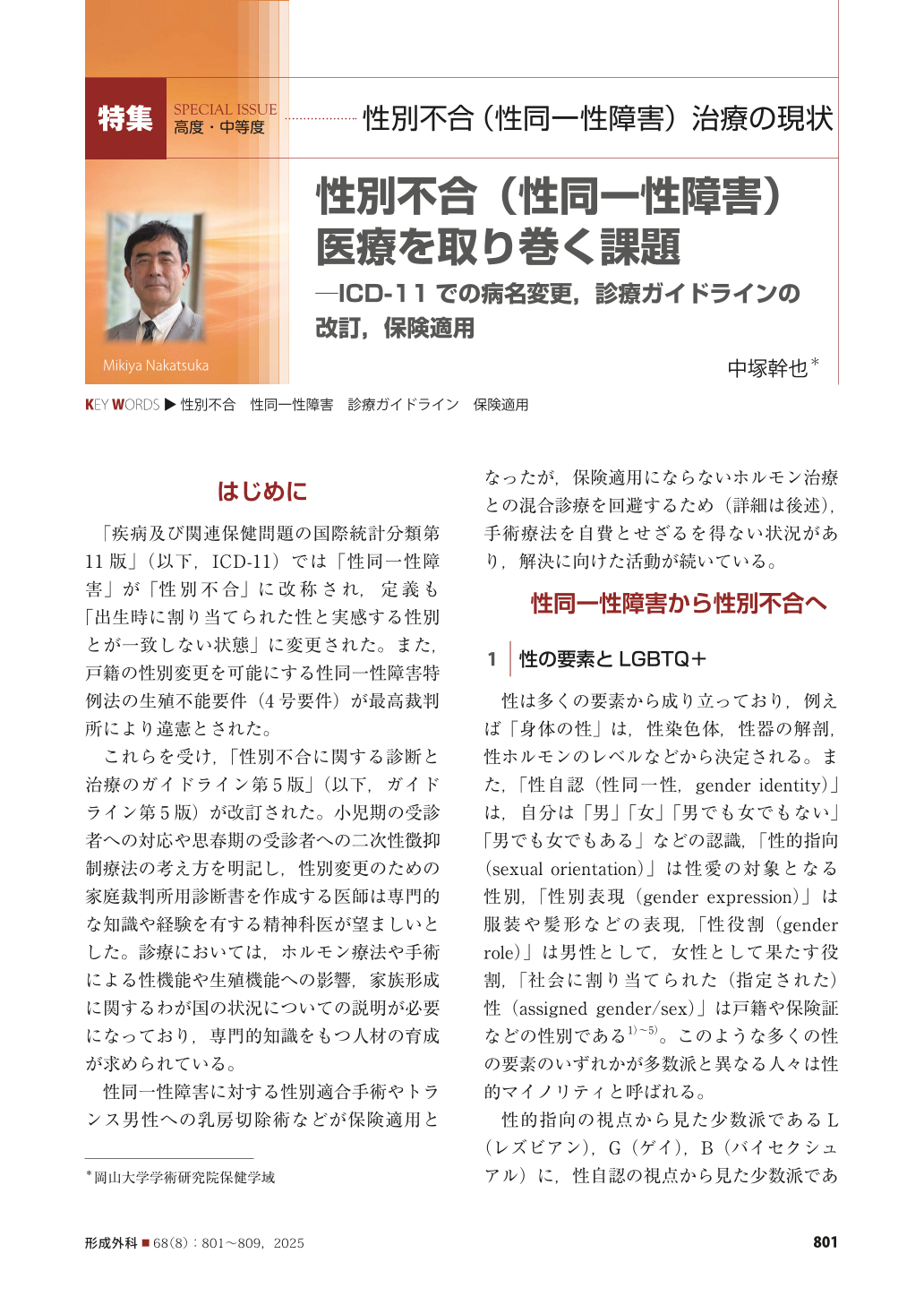Japanese
English
- 有料閲覧
- Abstract 文献概要
- 1ページ目 Look Inside
- 参考文献 Reference
はじめに
「疾病及び関連保健問題の国際統計分類第11版」(以下,ICD-11)では「性同一性障害」が「性別不合」に改称され,定義も「出生時に割り当てられた性と実感する性別とが一致しない状態」に変更された。また,戸籍の性別変更を可能にする性同一性障害特例法の生殖不能要件(4号要件)が最高裁判所により違憲とされた。
これらを受け,「性別不合に関する診断と治療のガイドライン第5版」(以下,ガイドライン第5版)が改訂された。小児期の受診者への対応や思春期の受診者への二次性徴抑制療法の考え方を明記し,性別変更のための家庭裁判所用診断書を作成する医師は専門的な知識や経験を有する精神科医が望ましいとした。診療においては,ホルモン療法や手術による性機能や生殖機能への影響,家族形成に関するわが国の状況についての説明が必要になっており,専門的知識をもつ人材の育成が求められている。
性同一性障害に対する性別適合手術やトランス男性への乳房切除術などが保険適用となったが,保険適用にならないホルモン治療との混合診療を回避するため(詳細は後述),手術療法を自費とせざるを得ない状況があり,解決に向けた活動が続いている。
In the 11th version of the International Statistical Classification of Diseases and Related Health Problems (ICD-11), the term ʻgender identity disorderʼ was renamed ʻgender incongruence,ʼ and the definition was changed to a condition in which a marked and persistent incongruence exists between an individualʼs experienced gender and the individualʼs assigned sex. In addition, in 2023, the Supreme Court of Japan ruled that the requirement of sterility in the law to change the sex of an individual in the individualʼs family register violated the countryʼs Constitution.
The 5th edition of the Japanese Society of Psychiatry and Neurology/the Japanese Society of Gender Incongruence guideline for gender incongruence clearly describes the concepts of its diagnosis in childhood and its treatment with puberty blockers. These guidelines also state that psychiatrists with specialized knowledge and experience should provide the medical certificate for gender reassignment for use in family court. In addition, basic medical knowledge is increasingly required in Japan to explain the effects of hormone therapy and surgery on sexual/reproductive function and family formation.
Gender reassignment surgery and mastectomy are now covered by Japanʼs health insurance. However, in order to avoid double billing, the other surgical treatments related to gender reassignment are not covered in practice by the health insurance. Efforts to resolve this issue are ongoing.

Copyright© 2025 KOKUSEIDO CO., LTD. All Rights Reserved.


